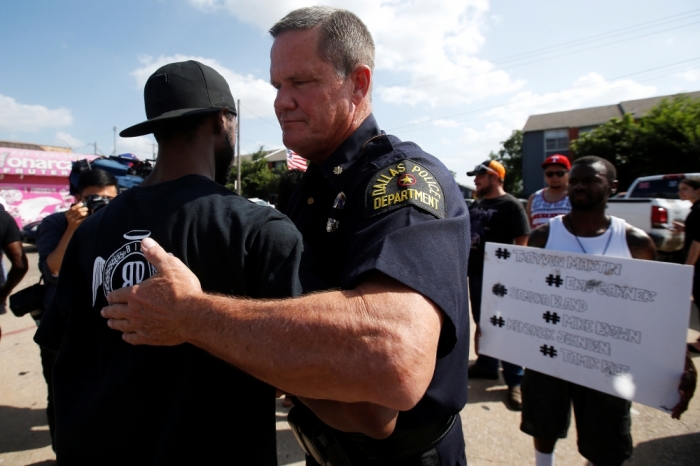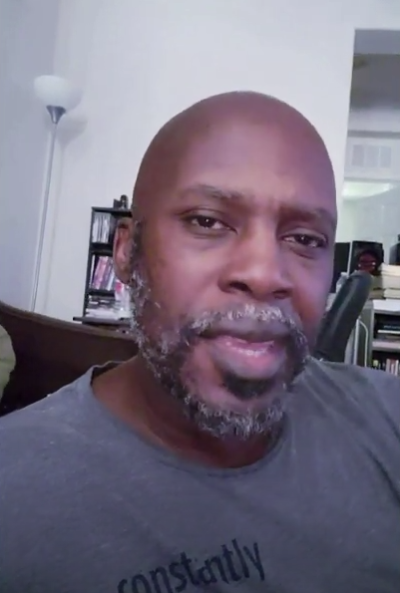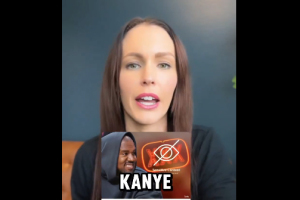Black former cop slams 'destructive' media narrative on police brutality

A black former police officer is encouraging Christians to examine the facts regarding police shootings of black men instead of blindly believing the prevailing narrative put forth by the mainstream media, Hollywood and politicians.
He warned that feeding into the “unfounded mistrust” of law enforcement ultimately hurts the weak and vulnerable.
Eric Muldrow, the founder of Code Red Conversations and a former Los Vegas police officer, participated in the “Awaken: Thinking Well About Wokism, Social Justice, & Racial Reconciliation” webinar hosted by Southern Evangelical Seminary in North Carolina on Saturday.
During the session titled “Is There an Epidemic of Police Violence Against People of Color?” Muldrow reflected on the bigotry and racism he faced from white people as a child — from regularly being called the “N” word to being cussed out by police.

“The impact, dealing with that, was almost on a daily basis,” he said.
But the racism he experienced wasn’t just from white people. Muldrow shared how black children in his school would mock him for speaking “too white” or for having skin that was “too dark.”
“For those of you who think that bigotry and racism can only come from white people, I would beg to differ,” he said. “I've seen bad and good come from all sides of the equation. But I would ultimately like to say that I believe that my life experiences put me in a unique position to openly discuss these issues.”
Muldrow said he’d be doing a “huge disservice” to his audience if he didn’t highlight the “massive changes” that have occurred in his lifetime among various ethnic groups “in spite of what you may be hearing from the mainstream media, Hollywood and many politicians.”
Regarding the issue of police brutality, Muldrow pointed out that for “every occasion of police deception, misconduct or carelessness,” there are “many others seeking to perform their jobs in a just manner.” However, these voices and actions are “rarely heard or seen,” he said.
“Why? One big one reason being that good news simply doesn't sell,” he said.
To understand the issue of police brutality, Muldrow said three tough questions must be asked: What is the reality of police brutality in our present-day? Are cops out of control in regards to the killings of black men? And what does the data say — are things as bad as they were several decades ago?
Muldrow listed several examples where the mainstream media and entertainment have influenced public opinion throughout the years “on a consistent basis.”
“People [are] coming to … conclusions about incidents without waiting for all the facts, sometimes with zero information. … I believe that we're starting to see a pattern,” he said, stressing that “popular opinion” can play a role in giving people a “false impression” of a situation.
Though some of the “ugly scars” on the United States regarding racism should not be ignored, Muldrow said the prevailing narrative about police has often been grossly exaggerated by the media and “in the end, can be destructive for all sides."
“Some of the main people who are against law enforcement [and] seeking to abolish or defund the police, some of the main groups that these people profess to be so concerned about, the people who live in some of these inner cities in these urban communities, they'll be the ones who are hurt the most,” he warned.
The former police officer cited statistics revealing anywhere from 500,000 to 1 million police officers in the U.S. It is estimated that police make anywhere from 100 million to over 375 million contacts with the public every year. Yet, less than 1% of these contacts require the use of force beyond low-level control holds or handcuffing, the retired cop said without citing a source.
Muldrow assured that he’s not trying to minimize any deaths that have occurred at the hands of police, adding: “We should always mourn when a fellow image-bearer of God loses his or her life.”
Yet, “we cannot ignore or overlook the reality when seeking to understand the details of these confrontations,” he said.
“We can mourn with those who mourn, and while at the same time, strive to diligently understand and know the truth,” he posited.
“In short, if you see a questionable video of a police encounter, you aren’t wrong for wanting to know the details. There's nothing wrong with saying, ‘Hey, what took place before that interaction?’ Because history will tell us that what took place matters. Oftentimes, what took place matters. It could change the whole scenario, or could change our whole opinion of the entire scenario.”
According to The Washington Post, police killed 999 people in 2019. The ethnic breakdown was 424 whites, 251 blacks, 168 Hispanics and 114 unknowns.
“I think at times people forget that police work isn't about delivering flowers or baking cookies,” Muldrow reminded. “Police are called to engage in the criminal element on many occasions, and sometimes you come across people who are violently seeking to attack you or violently resisting. On many occasions — I would dare say the vast majority of these occasions — the suspect's actions dictate the officer's response.”
Though a police officer can have a “bigoted or racist heart,” Muldrow said underlying factors often play a role.
According to statistics, out of nearly 1,000 shootings, only 55 were unarmed — but “just because someone doesn't have a weapon doesn't mean that they cannot be dangerous,” Muldrow clarified.
“So let's lose this idea when we hear ‘unarmed shooting’ that we naturally assume that, 'Oh, this person couldn't have been a threat,'” he said.
Studies also show there is a “clear reduction” in overall police shootings of black men.
Muldrow cited statistics from the Center on Juvenile and Criminal Justice that reveal that the police killings of African Americans have fallen over 70% over the last 40 to 50 years.
Police-related deaths of black men ages 25 and older have declined by over 61% since the late 1960s. And while the black youth population has doubled in size over the past 40 years, police shootings of black men ages 25 and under have fallen by nearly 80%.
“Ask yourself: How often do you see these numbers?" Muldrow asked the audience. "Have you ever heard this information before? And if not, if not, why not?”
Overall, the former police officer said, “these numbers are extremely, extremely low,” yet the reactions to the incidents are “excessive.”
“I think there's an intended perspective, media narrative, political narrative, at times, that is being formulated to make you think a certain way, or feel a certain emotion, and they've been extremely successful,” he said.
Much of the “unfounded mistrust” and “fear of police” stems from misinformation, Muldrow contended, and it’s hurting society’s most vulnerable.
“My hope and prayer is [that] as we struggle through these complex issues, that above all things we would be truth-seekers first and foremost, put aside personal opinions and biases in order to better determine the facts from the fiction,” he concluded.
The Christian Post’s Executive Editor Richard Land was the president of SES until July 2021 and presently serves as an adjunct professor and president emeritus.




























